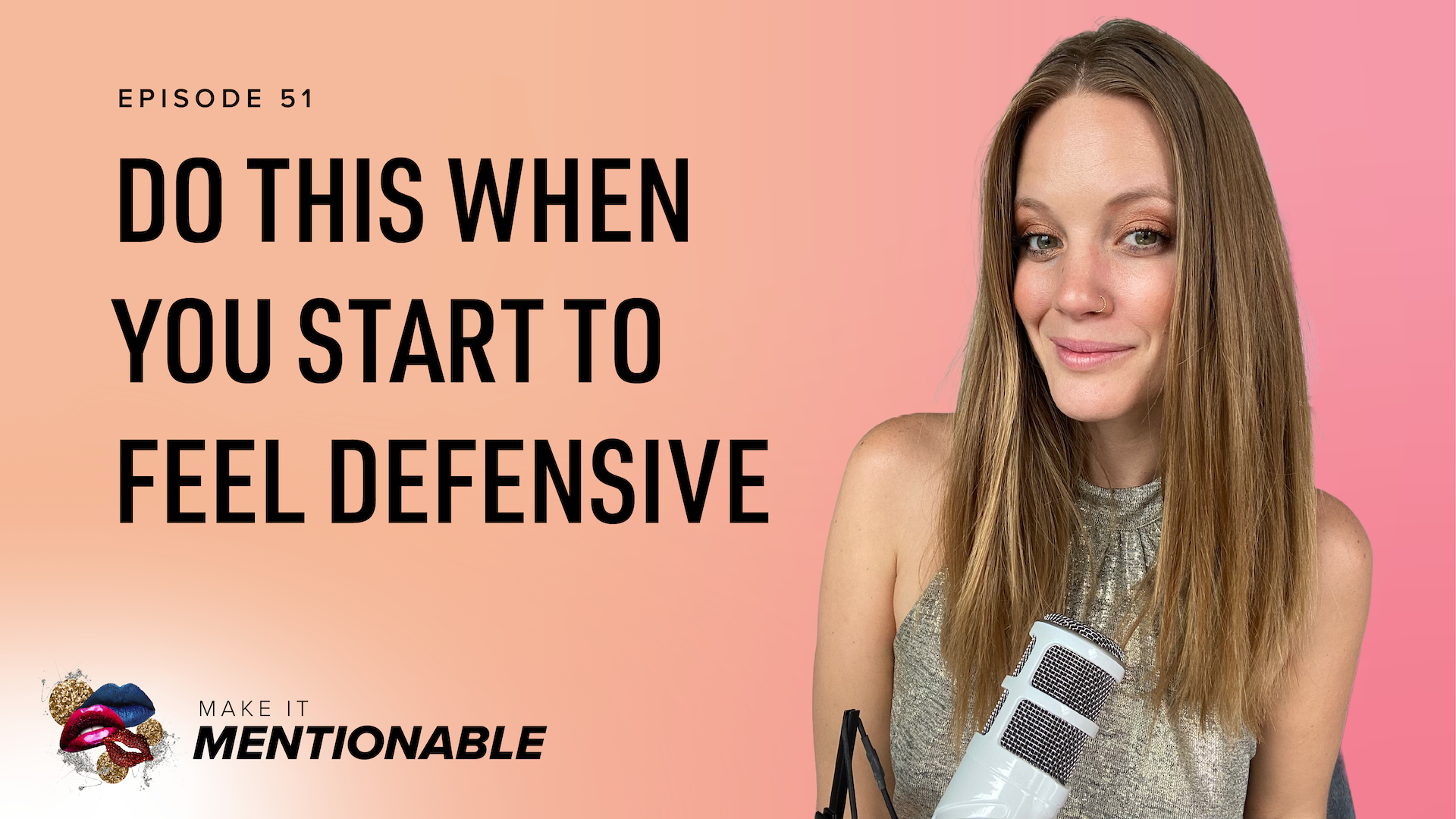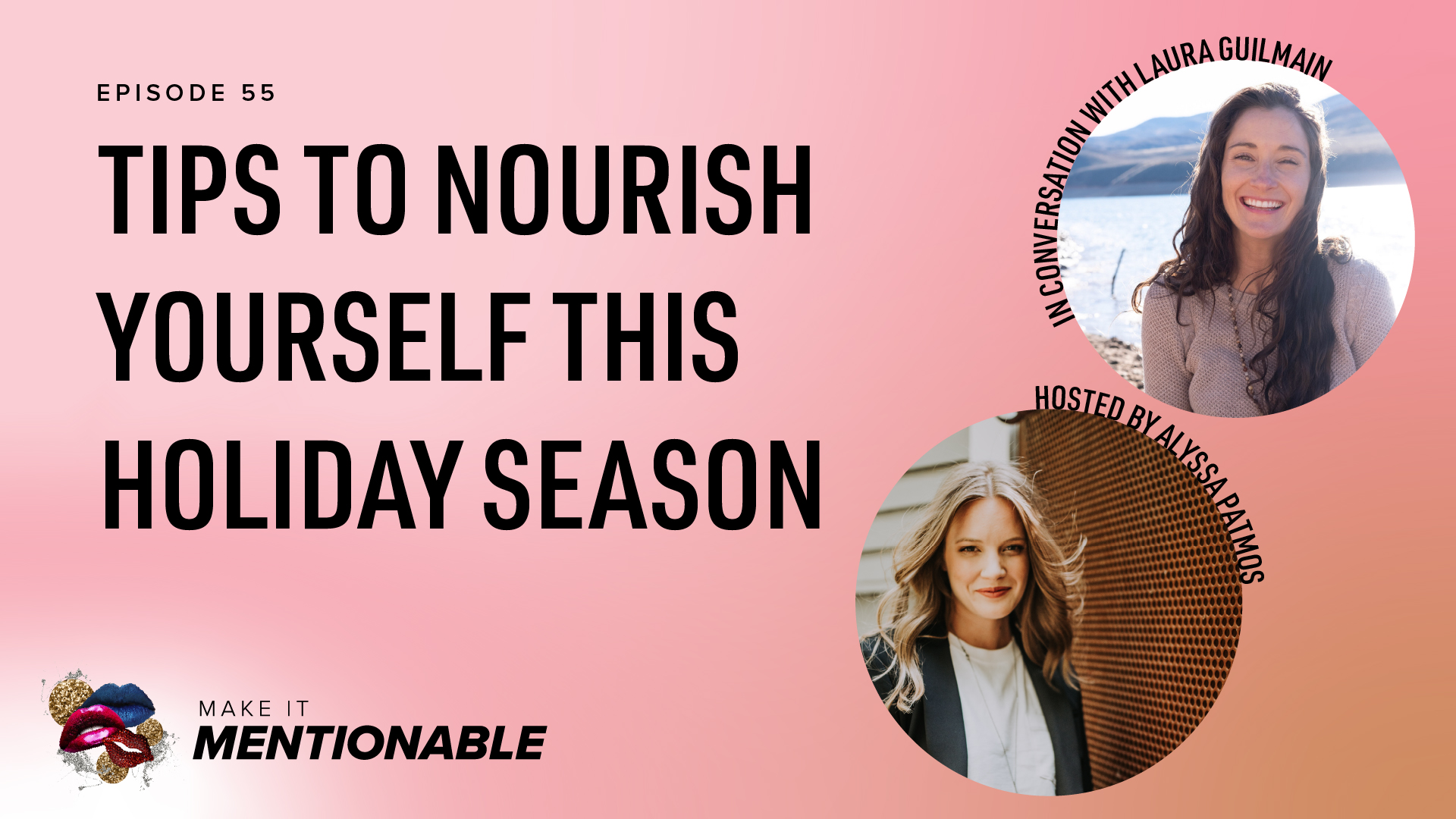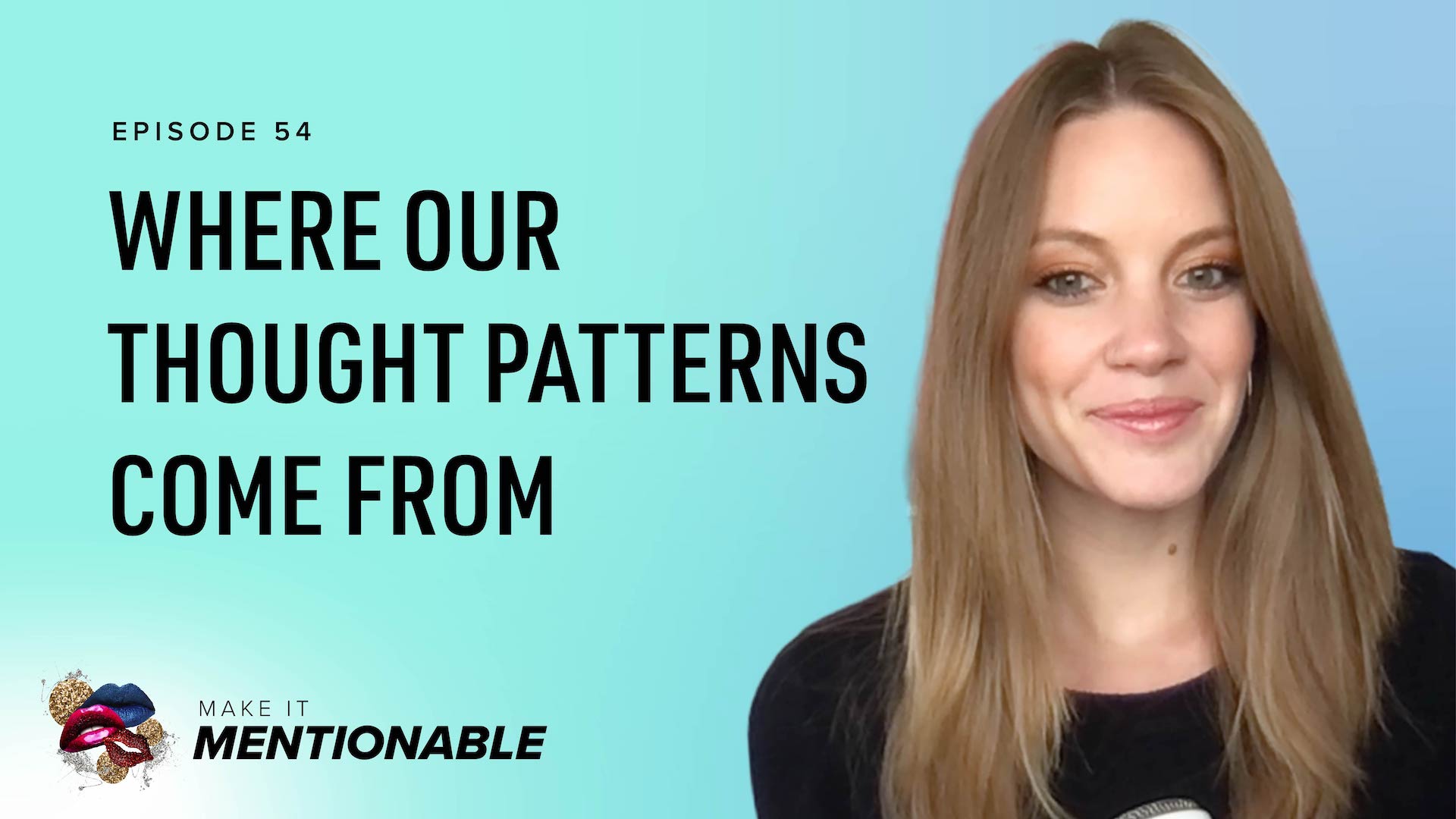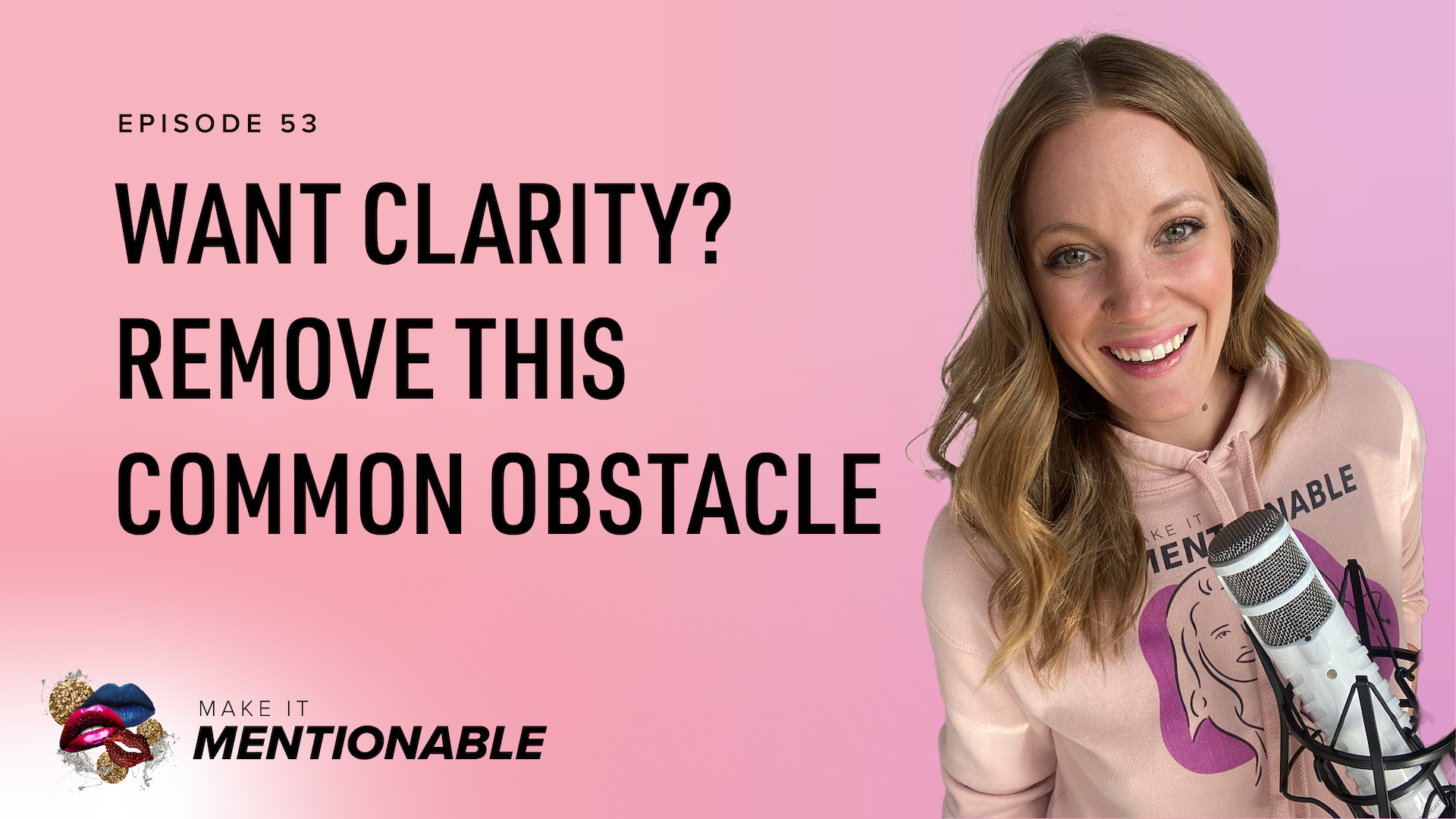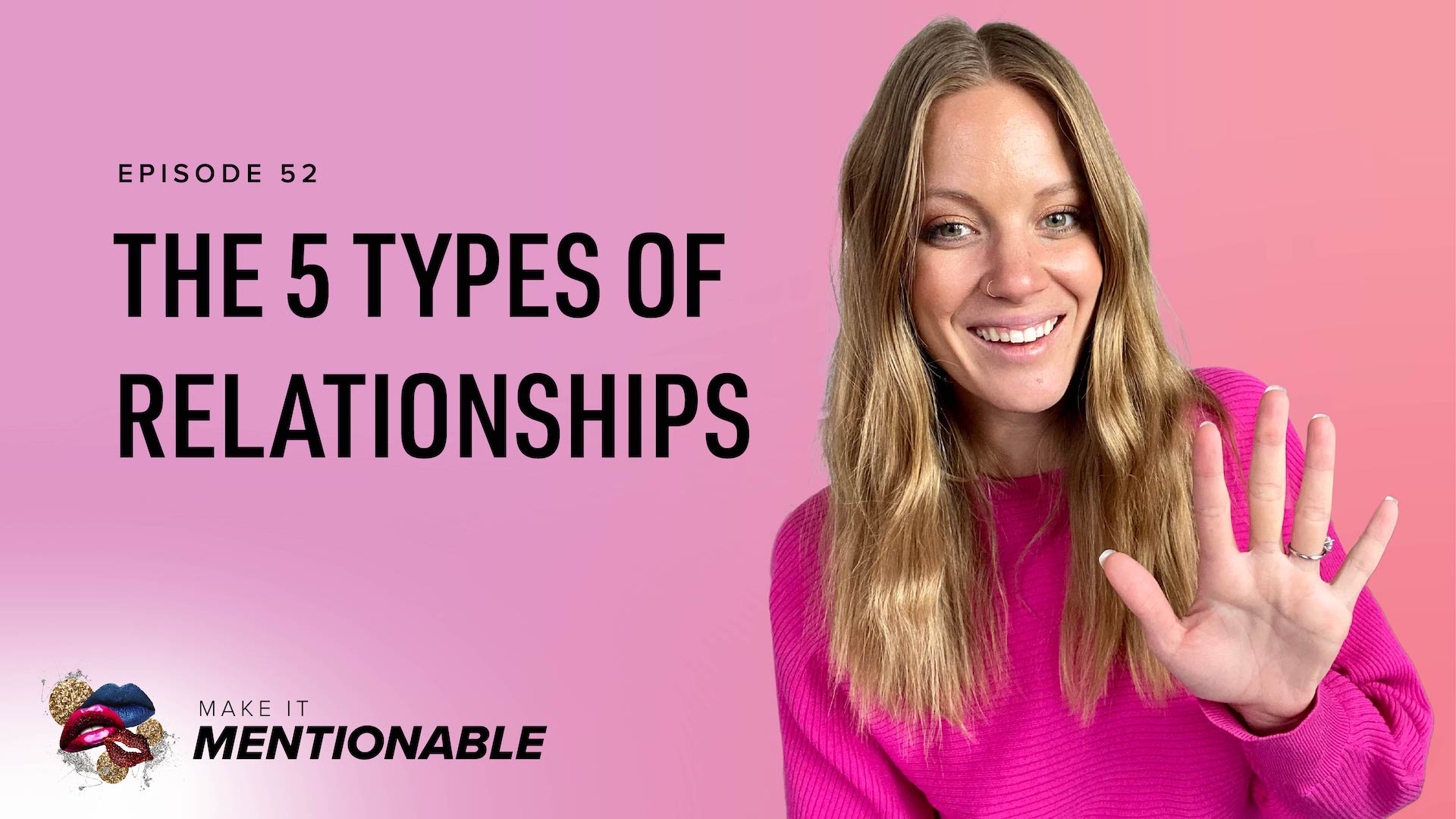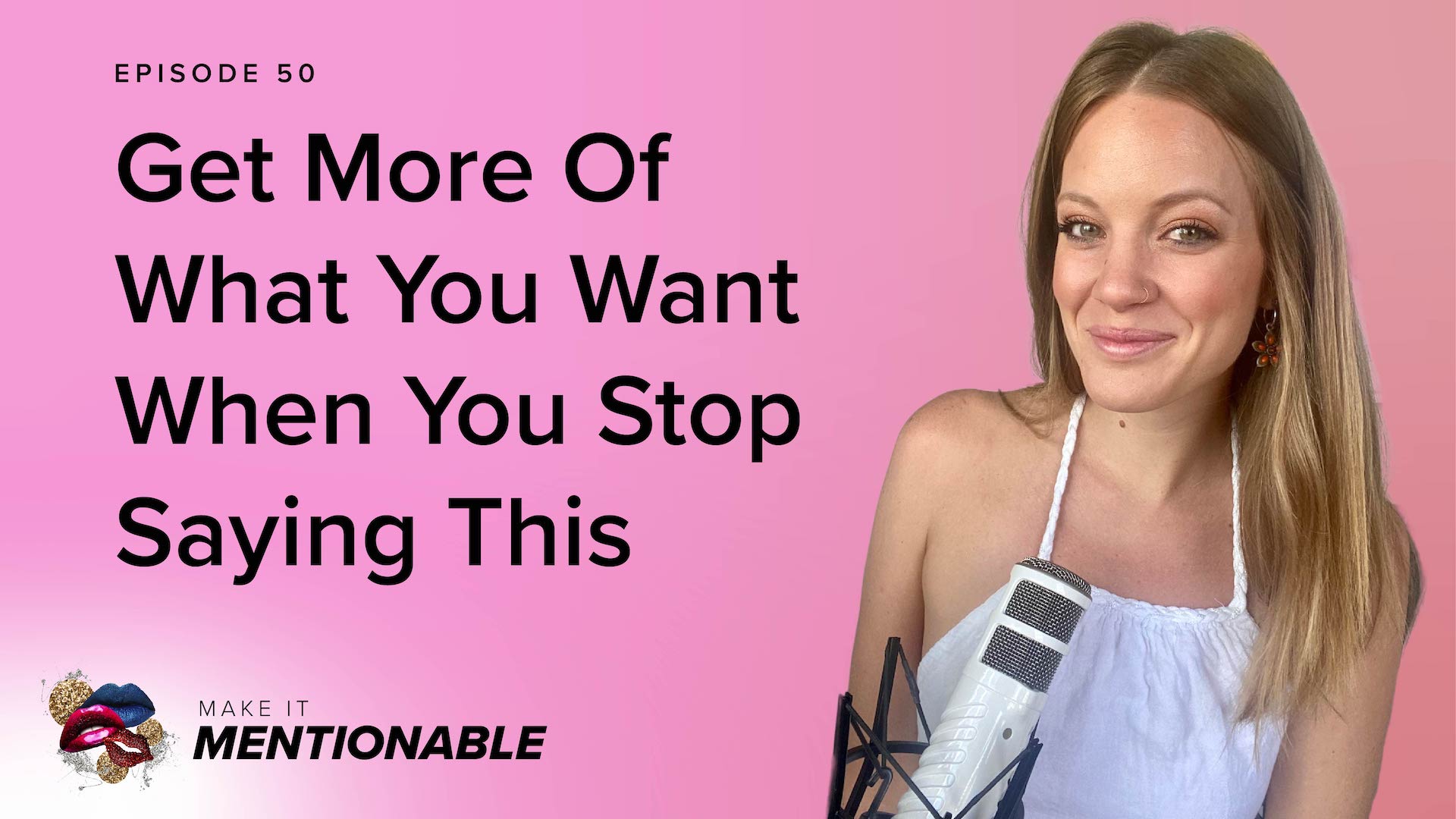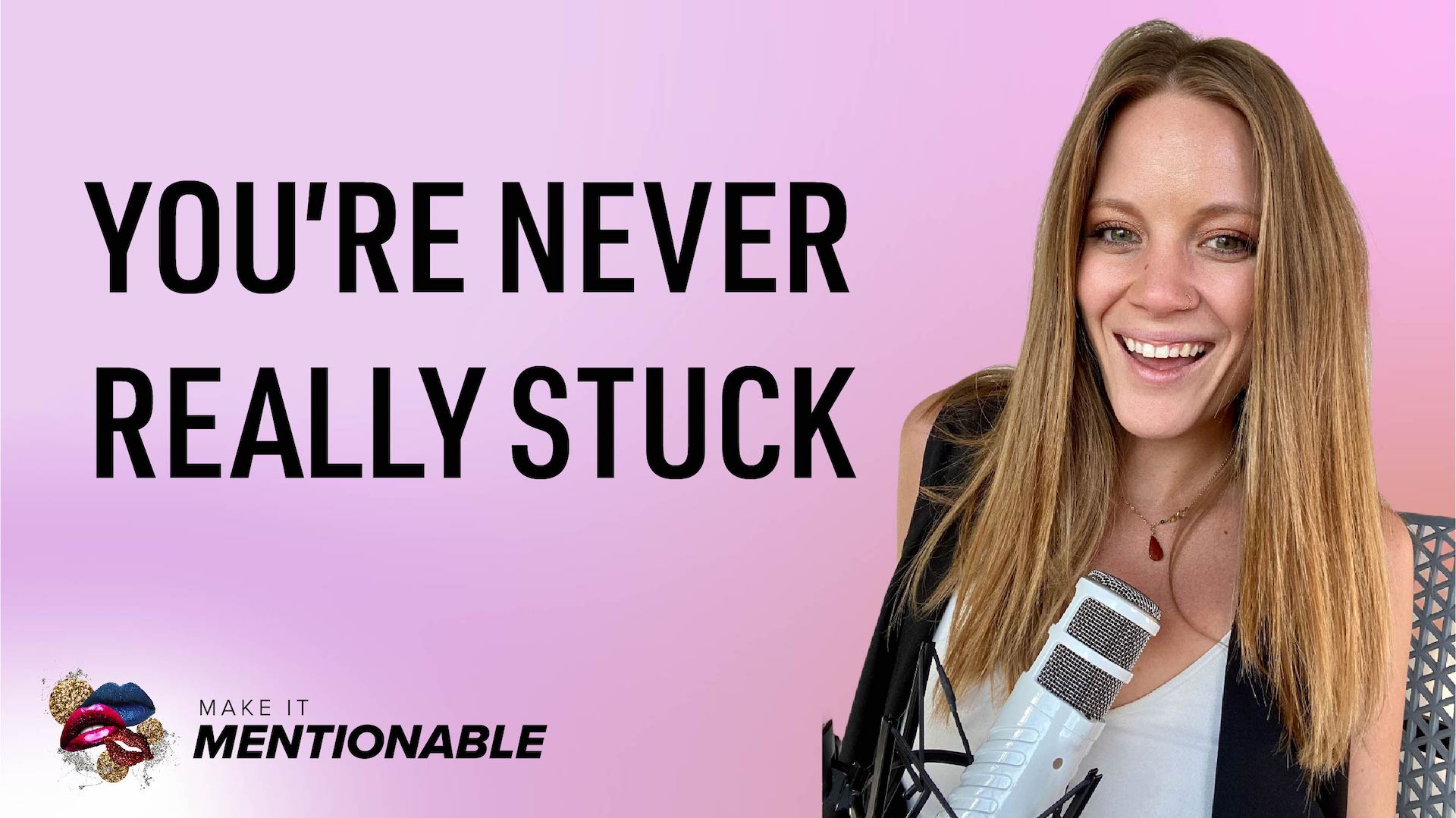Alyssa Patmos 0:04
This is Make It Mentionable. I’m Alyssa Patmos and this is the show about being human in a world that encourages us to be robots.
I invite you to join me as we journey through the mess, the magic and the mania in between.
Because what we can talk about, we can manage.
This honest conversation extravaganza includes free flowing conversations and high doses of vulnerability to remind you that you aren’t alone. No topic is off limits, and episodes are designed to leave you smarter, aka more self aware than when you came.
I am so glad you’re here.
This Week’s Pivot: Avoid Defensiveness By Asking A Question
Alyssa Patmos 0:50
Hello, Hello. And welcome back to another episode of Make It Mentionable.
I’m your host, Alyssa, and I have a pivot for you this week, that will save you in times of conflict.
Because conflict is inevitable in relationships.
We talk about it here a lot, because it’s something that plagues all of us. And conflict can lead to intimacy.
But it can also lead to disconnection and how we handle conflict determines whether it brings us closer or whether we feel further apart from the people we love in the end.
Finding Connection In Conflict
So this pivot today helps bring you to connection in conflict rather than, you know, feeling like there’s this rupture or this tear in the relationship.
So, how many times do you get defensive when you’re in conflict? Because it’s something I noticed myself doing.
It’s something, it’s something it’s natural to do.
As humans, we have nervous systems with a fight or flight response. And sometimes when the fight one kicks in, you know, we have a tendency to get defensive.
And that’s not always helpful, because when we’re just in this place of defending ourselves, we cut ourselves off from listening to the other person’s perspective.
Choosing Defensiveness Means Blocking Out New Perspectives
And from seeing things in a new way. The second we go down the trail of getting defensive, we’re attaching meaning to what’s going on, we are seeing it from one point of view, and trying to explain away everything that is happening.
And without distance, without being able to take a step back or get a breath from that, we can start to spiral down and the conflict can start to escalate rather than dissolve.
My Favorite Way To Break The Defensiveness Spiral
So the pivot to make when you start feeling defensive in a conversation, whether it’s with a loved one, or whether it’s with someone at work, whether it’s with a friend or a sibling, is to ask a question.
Now, there are many tools to break the defensiveness cycle. But this is one of my absolute favorites.
You can ask yourself a question or you can ask a question to the other person.
When you’re asking a question to the other person. It’s like turning the spotlight, which is a phrase Kasha Urbaniak, I’m probably pronouncing her last name wrong, which I’m very sorry about, talks about in her book called Unbound, which is an excellent book that I highly recommend everyone read.
But anyway, so when you ask the other person in question, you you’re turning the spotlight away from you for a second, which can give you a second to breathe, it can give you a second to regulate your nervous system.
Take a few breaths in and get back to a place where you’re no longer responding from such a defensive point of view, gives you a second to gain some perspective.
3 Specific Questions To Ask Others When You’re In The Middle Of Conflict
So you can ask questions like, “Hey, I’m starting to notice I’m feeling defensive. How are you feeling right now?”
And it encourages the other person to reflect as well. So it gives you time to pause and reflect but it also encourages the other person to reflect to another question you could ask is, “Hey, can we take five minutes right now?” Or you could say, “I’m curious, how are you feeling about this? Or about this situation?”
Or you could ask a more specific question in relation to the conflict that you’re in, so that you can get more information.
Because oftentimes, we start to get defensive when we just feel like we have to protect ourselves.
So sometimes getting more information can be helpful, to help us get a different perspective and understand the situation differently.
1 Key Question To Ask Yourself When You’re In The Middle Of Conflict
The second piece, though, that we talked about is also asking yourself a question. And when you start to get defensive if you can pause and you can ask yourself, “What about this feels familiar?”
Alyssa Patmos 4:51
We can get more perspective, we can start to get the distance that we need to see things more clearly.
Because when we get flooded, when we get defensive, we’ve gone down a path of not completely seeing the whole picture with crystal clarity.
And when we communicate with all of that emotion first, and all of the attachment of the stories and the meanings, we can get thrust to different places we can get thrust to worrying about the future, we can get thrust to something that has happened in the past and projected on to the situation in this moment.
And so if we can take the time to ask ourselves a question like, “What about this feels familiar?” Or, “Okay, what am I noticing in my body?” Because drawing your attention back to the present moment, will again allow you to create more space.
Responding Instead Of Reacting In Conflict
And from that place, you can respond instead of react.
Defensiveness is often our gut reaction, but it’s not always the most helpful reaction.
And when we feel defensive, even asking, like, “Why do I feel the need to protect myself right now?”
And when we can open up about that to ourselves and and to the other person as well, we allow for more compassion to enter into the conversation.
When you start to feel defensive, the easiest, maybe not the easiest, I should reframe that.
The Simplest Pivot In Moments Of Defensiveness (This Will Stop The Spiral)
The simplest pivot for you to do in that moment is to ask a question, you can either ask a question of yourself or ask the question of another person, because it encourages reflection, it opens up our ability to see new perspective.
And we can stop the spiral into just I’m going to defend myself, you defend yourself, and it’s you and me against each other. Instead of it being okay, Person A has a perspective, person B has a perspective. And then there’s this conflict, which is C in front of us.
And person A and B are able to look at that conflict together as this thing outside of them.
That’s how compassion can enter conversations, and enter conflictual situations with greater ease when we’re able to look at the conflict as something outside ourselves.
But we need to be able to get to the point where it feels like the conflict is something outside of us.
And we’re not just going into this story of protection and defense and, and having a wall up blocking any sort of vulnerability.
And one of the ways to get there is to make a pivot in that moment, and stop the defensive spiral and ask a question.
It’s All About The Small Pivots Like These
Instead, it is the small pivots that lead to the pivotal moments in our lives, those moments where we look back, and we’re like, wow, things really turned around for me, these small pivots in relationships that allow you to transform a relationship without ever needing the other person to change a single thing about themselves.
The Only Thing We Can Control Is Ourselves And Our Reactions
Because at the end of the day, the only thing that we can control is ourselves and our reactions.
So getting better at reacting, getting better at at responding instead of reacting and taking some of the emotional weight off of situations allows, us allows us to be more compassionate to ourselves and to other people, and to resolve conflict in a quicker way, where we actually end up feeling closer to the people around us rather than disconnected from them.
Pivoting From Defensiveness Leads To Greater Connection
So if you need a quick pivot to implement today, ask a question the next time you start to feel defensive and see where it takes the conversation because these small communication pivots totally transformed the way that you interact with other people in a way that leads to to greater connection, which is what we all want here. More meaningful connection, I think so. Thank you so much for tuning in.
Alyssa Patmos 9:04
This has been another episode of Make It Mentionable. I’m your host Alyssa. And if you want more in between each episode, head on over to AlyssaPatmos.com/ThePeel and sign up for my newsletter with fresh perspectives to help you pivot. I will catch you next week.
Alyssa Patmos 9:25
You’ve just finished listening to another episode of Make It Mentionable with me your host Alyssa Patmos. If you’re looking for more in between episodes, then sign up for The Peel. It’s my free newsletter that gives tips for how to navigate whatever life dishes and it’s also the place where I share the juiciest of stories. To check it out. Head on over to AlyssaPatmos.com/ThePeel Thank you so much for tuning in. And I’ll see you next time.
Transcribed by https://otter.ai

